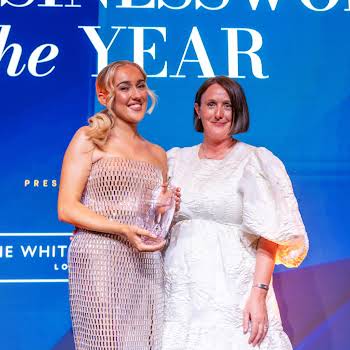
By Colette Sexton
27th Sep 2021
27th Sep 2021
Business writer Colette Sexton on why being rude at work really does not pay, despite what you might think.
For decades, we’ve been told that nice guys finish last and to be respected you must be feared. However, that (thankfully) is not the world we live in anymore and when it comes to the workplace, not only is it nice to be nice, it’s also prudent, career-wise.
The science of kindness
More than half of people (59 per cent) are willing to share information with a civil person and 71 per cent are more motivated to work harder for a civil person, a study conducted by Christine Porath, leadership researcher and professor of management at Georgetown University, found.
If you are rude or unsociable, it makes people less likely to work hard. In fact, another survey of business alumni carried out by Porath found that if someone was treated disrespectfully or insensitively in work, 66 per cent cut back their work efforts. In addition, 80 per cent lost time worrying about what happened, and 12 per cent left their job.
Advertisement
Porath also found that people are 1.22 times more likely to recommend a civil person for a job. So being civil not only can improve the performance of your team but it could also help you land a new job or promotion.
Civility
If you think about it, it makes sense. Everyone has experienced a time when a colleague or manager treated them in a cruel manner and for many, that bad experience can taint any future interactions with that person. It costs nothing to be nice but it could cost you a future job or a valued employee if you are rude or insensitive.
Plus incivility, whether it is shouting at a colleague or complaining that an assignment was not done correctly, might have the reverse effect and cause people to produce less effective and efficient work. The majority of the 800 physician executives surveyed by US researchers Alan Rosenstein and Michelle O’Daniel said that disruptive or rude behaviour happens in their hospitals at least once a month. Of these, 10 per cent called it a daily occurrence and almost all believed that this bad behaviour negatively affected their patients’ care. On top of that, nearly one quarter said that it led to actual harm to their patients.
It is not hard to be civil. One study found that just a smile and simple thanks resulted in people being viewed as 27 per cent warmer, 13 per cent more competent, and 22 per cent more civil.
Promotes dedication
It is not rocket science. Respect attracts others. People are more likely to want to work with you on special projects, stay late if you need them to finish something important, or swap shifts with you if you treat them well.
If you want to be civil at work, there are a few steps you can take. First of all, if you tend to scream or shout in the office as a way of trying to assert your authority, stop it. You’re not impressing anyone and you are certainly not motivating people to work harder or better. Thank people when they do a good job or do you a favour. Say hello or smile at someone when you meet them in the hallway. Listen to your employees or co-workers and try to help if you can. Make sure to include everyone – if one person gets a cake on their birthday, everyone should get one. Essentially, just treat people the way you would like to be treated. In the long run, it will pay off.
Advertisement
This article was originally published in January 2019























